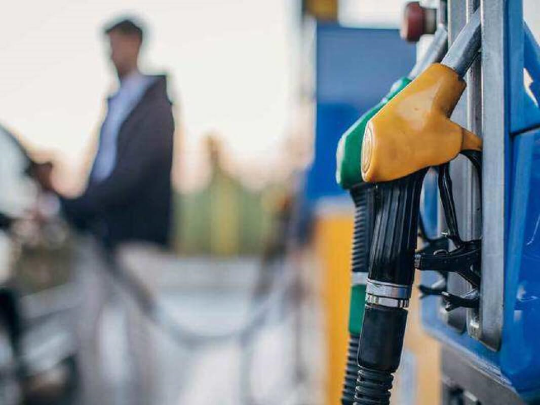Disequilibrium in The Oil Market and Its Impact on Bangladesh
Mahmudur Rahman | 06 December 2021
The ongoing Covid-19 pandemic has left the global economy in a tumultuous state, creating disequilibrium in the supply and demand of the worldwide oil market.
When the pandemic first hit, the global oil demand fell rapidly as businesses closed down, travel was restricted, and global trade came to a halt.
On April 21, 2020, the Brent Crude, the international benchmark for oil prices, tumbled down to $9.12 a barrel from $70 at the beginning of the year.
This reduction resulted from a price war between the Organization of the Petroleum Exporting Countries (OPEC) and Russia as the latter refused to cut production, which led to a surplus amount of oil in the market.
Low demand and high supply plunged the oil market into negative figures.
The exact opposite is happening now though as global trade resumes and travel restrictions are lifted, the oil demand has surged while the supply has been kept low by OPEC countries to keep prices high.
Additionally, a shortage of natural gas and coal from Asia to Europe is driving the demand for oil products in power generation.
This shortage has produced an oil crunch around the world, the effect of which is being felt by end consumers as they have to pay higher prices for each liter of oil consumed.
The Brent Crude price has hit a high of $85.76 per barrel and it is expected to reach $90 by the end of 2021. This increase has had a devastating impact on developing nations, particularly Bangladesh.
The Bangladesh Petroleum Corporation (BPC) is a state-owned company with the sole authority in procurement, distribution, and pricing of oil in Bangladesh.
It has a monopoly on the oil market of the country and with no competition, the consumers are at the whim of the BPC.
The BPC raised the price of diesel and kerosene from Tk 65 to Tk 80 and furnace oil Tk 59 to Tk 62, a 23.1 per cent and 5.1 per cent rise respectively, effective since November 4, 2021.
According to a press release issued by the Ministry of Power, Energy and Mineral Resources, the price was hiked to recover the losses of state-owned BPC amounting to Tk 20 crore per day, and about Tk 7,200 crore yearly.
Economists have questioned the necessity of the oil price hike. Statistics from the Ministry of Finance show that BPC has accumulated a profit of nearly Tk 43,138 crore from FY2015-21.
This profit could have been used to subsidise the price of oil and save the people from unnecessary financial pressure. An analysis of BPC's financial statements reveals that they expect to make Tk 7,838 crore just from import duty and VAT in FY2021-22.
So, the government could've written off these two taxes as a form of subsidy or stimulus package.
Experts had argued that if the reason behind the price hike is the global price rise, then why wasn't the price reduced when the international price was low in 2020?
Bangladesh has a history of price hikes; it rarely goes down once the price goes up. Fuel price stability is crucial for the economy's recovery from the detrimental effects of Covid-19 and so, reverting to the earlier price for oil has become an imminent need for the people of Bangladesh.
The increased cost of oil will inevitably increase the transportation cost of buses, trucks, and ferries, on which millions of people rely every day.
The production cost of all things will rise, thus increasing the cost of living. Citizens from all walks of life will have to pay more for the same standard of living and those who cannot afford these higher costs will face a deterioration in their livelihoods.
Transport service owners double the people's sufferings as they exploit every opportunity to extract extra charges from consumers.
All this is happening when the people are reeling from surges in the price of everyday commodities. The cost of soybean oil, potato, fish and chicken has all increased drastically while incomes have not.
According to the Bangladesh Bureau of Statistics (BBS), the inflation rate was 5.59 per cent as of September this year. However, the inflation rate does not match the scenario on the ground, which raises a question on the reliability of the data.
Adding to this, the taka has depreciated, decreasing the currency's purchasing power, making imports more expensive.
On the other hand, both export and remittance inflow will increase as a result.
The BRAC Institute of Governance and Development (BIGD) and the Power and Participation Research Centre (PPRC) conducted a survey that found that the second wave of the pandemic pushed 3.24 crore people, or 19.54 per cent of the country's population, into poverty as of August 2021.
Also, the percentage of families skipping a meal the previous day jumped from 2 per cent in March to 7 per cent in August.
The World Bank estimates that the high energy costs of 2021 are expected to remain elevated in 2022, adding to global inflationary pressures and potentially shifting economic growth to energy-exporting countries from energy-importing ones.
Despite the numerous challenges, the economy of Bangladesh seems to be growing at an astounding speed but is incapable of hiding the rising inequality among the people.
Without sustainable and equitable policies, the sufferings of the people will continue to expand into new territories and so, the priority should be people before profits.
Mahmudur Rahman is a research assistant at the Centre for Governance Studies (CGS).
Views in this article are author’s own and do not necessarily reflect CGS policy.
